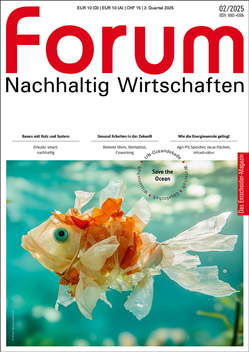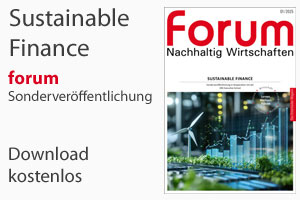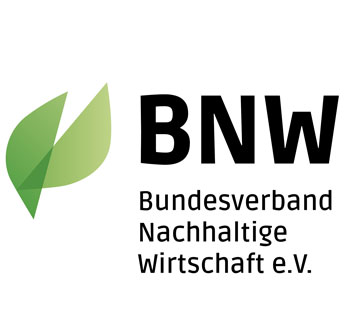Global Solutions Summit 2022
Accelerating the Circular Economy transition is a response to disruptions in global supply chains and the fulfillment of environmental goals
Doubling the circularity of the world economy from 10% to 20% could reduce global greenhouse gas emissions by nearly 40%, by 2030, according to the Call for Action by an international group of experts convened by the Global Solutions Initiative (GSI) and the German Agency for International Cooperation (Deutsche Gesellschaft für Internationale Zusammenarbeit - GIZ), ahead of the Global Solutions Summit 2022 in Berlin.
 Global Solutions Summit Berlin 2022 ESMT Berlin. Bundeskanzler Olaf Scholz. © Global Solutions Summit
Global Solutions Summit Berlin 2022 ESMT Berlin. Bundeskanzler Olaf Scholz. © Global Solutions SummitAccording to a new report published by the Asian Development Bank Institute (ADBI), the issue of effective waste management is addressed by concepts of circularity. The imperative for circularity in developing Asia, where the expected population size in 2050 is 3 billion, ‘a circular economy could serve as a critical component in improving resource efficiency as urbanization continues to increase’.
One setback is that ‘COVID-19 recovery plans and investments are only loosely coordinated within the G7, the G20, and globally’ whereas ‘urgent responses to disruptions in global supply and value chains often ignore the great potential of the circular economy’ underline the experts.
In her keynote address at the Global Solutions Summit 2022, the German Federal Minister for the Environment, Nature Conservation, Nuclear Safety and Consumer Protection (BMUV), Steffi Lemke, addressed the role of circular economy, in an important step towards the G7 Environment Ministers’ Summit in May. The extension of producers’ responsibility and the development of social and ecological due diligence framework in global value chains are part of the agenda.
For Charles Huang, Founder and Chairman of Circular Taiwan Network, addressing changes in the supply and value chains is key. The COVID-19 pandemic and other geopolitical disruptions call for accelerated and collaborative move ‘from globalized linear supply chains to a regionalized, closed-loop and thus more resilient circular economy value network’.
At Global Solutions Summit, the Regional Director of the World Resources Institute (WRI) Europe, Stientje van Veldhoven, will speak about the Institute’s flagship initiative, the Platform for Accelerating the Circular Economy (PACE) and highlight the role of cities to accelerate the transition to circularity.
The world needs multilateral and multilevel solutions across the G7 and G20 to address major challenges, such as plastics. Less than 10% of all plastics created since the 1950s has been recycled and nearly 80% has ended up in the environment. This was highlighted in INTERSECTING: Bending the Linear Economy, a global research and editorial project by GSI and GIZ.
The adoption of a legally binding roadmap by 2024 – Treaty on Plastics – at the United-Nations Environmental Program (UNEP) General Assembly in Nairobi this February marks a major breakthrough. ‘Developing a Circular Society is inseparable from the implementation of a Circular Economy,’ notes Alexander Bonde, the Secretary General of the German Federal Environmental Foundation. This ‘offers immense environmental and economic prospects but also increases resilience and decreases the dependence on other countries,’ he further stated. These key comments come in light of the current war in Ukraine.
Circular economy and creative economy are inseparable concepts. International cooperation and capacity-building are essential to develop circular economy in the Global South. According to Izabella Teixeira, co-chair of UNEP International Resource Panel and former Environment Minister of Brazil, ‘there are huge reservoirs of green growth in middle- and lower-income countries’ which will be successfully exploited if young generations understand the benefits of sustainable lifestyles. Izabella is notable for her significant contributions to the Paris Agreement negotiations.
For Ingrid-Gabriela Hoven, Managing Director at GIZ, ‘Circular economy, as a means to support climate mitigation efforts, is becoming increasingly important as the urgency to raise climate ambitions grows.’ She remarks that this is the leitmotif for GIZ's advisory services for the circular economy and capacity building.
For UNIDO, technology, in particular, the development of the Fourth Industrial Revolution, is an enabler for the development of a circular economy. In a policy note for the T20 Indonesia, the think-tank engagement group of the G20, twenty experts note that a durable shift towards circular economy depends on four key factors: 1) expanding the responsibility of producers, and enforcing transparent and accountable standards; 2) developing both national plans and cross-border partnerships, supported by new policies and legislative actions with strong international dimension such as the European Union Sustainable Finance Taxonomy and the upcoming EU Sustainable Products Initiative package; 3) incorporating circularity into National Climate Targets (NDCs), an objective in preparation for the upcoming COP27; and 4) developing circular principles that enhance social justice. They also call for including cities in global decisions and paying more attention to the role of the informal economy.
As illustrated by the EU Resource Efficiency Initiative (EU-REI), an EU- supported project for the Government of India, global cooperation is the cornerstone of the transition to a circular economy. The EU-REI supports the implementation of the UN sustainable Global Consumption and Production agenda, as part of the Agenda 2030, in India. Such cooperation must happen globally, as emphasized in the high-level G20 Resource Efficiency Dialogue since 2020. International cooperation needs to be localized and geared towards MMSMEs, and include workers in the informal economy.
In June 2022, a summer school organized by GSI’s Young Global Changers Program in partnership with GIZ and OP Jindal Global University (Sonipat, India), will gather students, young researchers and entrepreneurs. The summer school is organized with the support of the University of Indonesia LPEM-FEB and others. It looks ahead to the G20 Youth Summit in Bandung and is in preparation of an international conference on circular economy and creative economy during G20 India in 2023.
About the Global Solutions Initiative
The Global Solutions Initiative is a global think tank network that develops policy recommendations for action on the most pressing issues of our time, as addressed by the G20, G7 and other global governance forums. The policy recommendations and strategic visions are developed through a disciplined research program by leading think tanks and science organizations and discussed and refined in policy dialogues among decision-makers from academia, politics, business, and civil society.
Contact: Global Solutions Initiative, Christoph Podewils | christoph.podewils@global-solutions-initiative.org | www.global-solutions-initiative.org
Umwelt | Ressourcen, 28.03.2022

Save the Ocean
forum 02/2025 ist erschienen
- Regenerativ
- Coworkation
- Klimadiesel
- Kreislaufwirtschaft
Kaufen...
Abonnieren...
30
APR
2025
APR
2025
Franz Alt: Die Solare Weltrevolution - Aufbruch in eine neue Menschheitsepoche
In der Reihe "Mein Klima… in München"
80331 München und online
In der Reihe "Mein Klima… in München"
80331 München und online
07
MAI
2025
MAI
2025
MakerCamp Genossenschaften 2025
Genossenschaftliche Lösungen in Wirtschaft, Kommunen und Gesellschaft
65189 Wiesbaden
Genossenschaftliche Lösungen in Wirtschaft, Kommunen und Gesellschaft
65189 Wiesbaden
08
MAI
2025
MAI
2025
Die intelligente Transformation: ESG + KI = Zukunftssicherung
Wer Nachhaltigkeit ohne KI umsetzt, verpasst entscheidende Chancen
Webinar
Wer Nachhaltigkeit ohne KI umsetzt, verpasst entscheidende Chancen
Webinar
14
MAI
2025
MAI
2025
Klimaschutz im peruanischen Regenwald
Delegierte der Asháninka teilen ihre Perspektiven
80802 München, Seidlvilla
Delegierte der Asháninka teilen ihre Perspektiven
80802 München, Seidlvilla
Professionelle Klimabilanz, einfach selbst gemacht

Einfache Klimabilanzierung und glaubhafte Nachhaltigkeitskommunikation gemäß GHG-Protocol
Digitalisierung
 Lässt sich KI politisch einfangen?
Lässt sich KI politisch einfangen?Christoph Quarch ruft zum zeitnahen "Human Action Summit" auf
Jetzt auf forum:
Dialog und Kooperation – Sie sind gefragt!
Gesundheits- und Sozialwirtschaft muss auf dem Weg zur Klimaneutralität unterstützt werden
„Ökobilanz-Rechner“ der DEUTSCHEN ROCKWOOL
Porsche investiert entschlossen in die Zukunft
ChangeNOW 2025: Ein Wendepunkt für die Wirtschaft der Zukunft


















